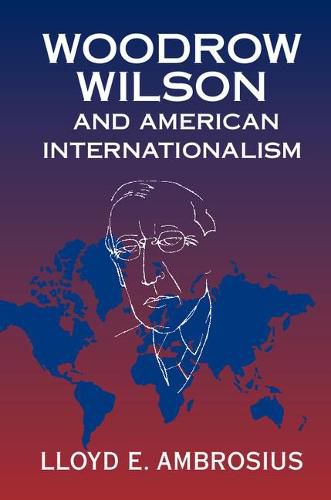Readings Newsletter
Become a Readings Member to make your shopping experience even easier.
Sign in or sign up for free!
You’re not far away from qualifying for FREE standard shipping within Australia
You’ve qualified for FREE standard shipping within Australia
The cart is loading…






In this new work, one of the world’s leading historians of US foreign relations, Lloyd E.Ambrosius, addresses enduring questions about American political culture and statecraft by focusing on President Woodrow Wilson and the United States in international relations during and after World War I. Updated to include recent historiography as well as an original introduction and conclusion, Woodrow Wilson and American Internationalism features nine different essays closely linked together by the themes of Wilson’s understanding of Americanism, his diplomacy to create a new world order in the wake of World War I, and the legacy of his foreign policy. Examining the exclusive as well as universal dimensions of Wilsonianism, Ambrosius assesses not only Wilson’s role during his presidency but also his legacy in defining America’s place in world history. Speaking to the transnational turn in American history, Ambrosius shows how Wilson’s liberal internationalist vision of a new world order would shape US foreign relations for the next century.
$9.00 standard shipping within Australia
FREE standard shipping within Australia for orders over $100.00
Express & International shipping calculated at checkout
In this new work, one of the world’s leading historians of US foreign relations, Lloyd E.Ambrosius, addresses enduring questions about American political culture and statecraft by focusing on President Woodrow Wilson and the United States in international relations during and after World War I. Updated to include recent historiography as well as an original introduction and conclusion, Woodrow Wilson and American Internationalism features nine different essays closely linked together by the themes of Wilson’s understanding of Americanism, his diplomacy to create a new world order in the wake of World War I, and the legacy of his foreign policy. Examining the exclusive as well as universal dimensions of Wilsonianism, Ambrosius assesses not only Wilson’s role during his presidency but also his legacy in defining America’s place in world history. Speaking to the transnational turn in American history, Ambrosius shows how Wilson’s liberal internationalist vision of a new world order would shape US foreign relations for the next century.